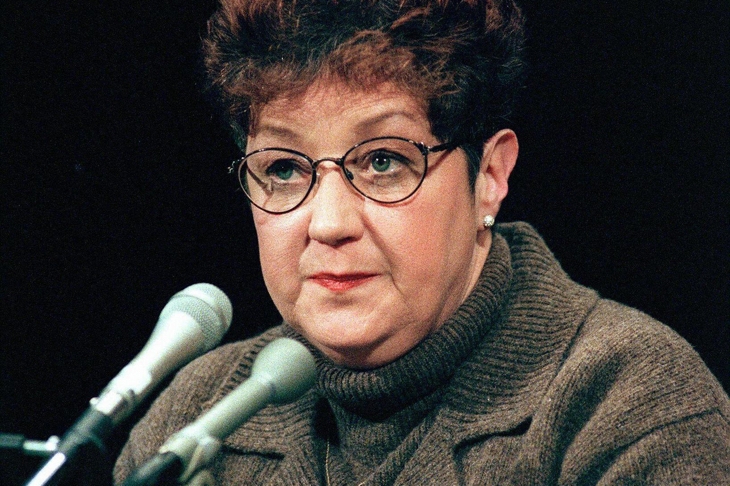Norma McCorvey, who died on Saturday, was unknown; as the Jane Roe in Roe v Wade, she became one of the most famous women in America, her name synonymous with abortion rights. When pro-choicers want to defend the abortion status quo, or pro-lifers want to overturn it, they’ll say it’s about Roe v. Wade.
She was the woman who sought to have the restrictions on US abortion law overturned. Or at least, she and two ambitious female attorneys did. When she was 21, pregnant with her third child, she sought an abortion in Texas. She was referred to Linda Coffee and Sarah Weddington, who were looking for pregnant women wanting abortions in order to change the abortion law. Jane Roe was the pseudonym they gave McCorvey to protect her identity.
The case was pretty academic, given that she gave birth to the child she was pregnant with during the three years of trials before it got to the Supreme Court. The child was adopted. Famously, in the 1990’s the poster woman for abortion did an about turn – she became a worker with Operation Rescue, to campaign for the repeal of the law which had been brought about by the Supreme Court judgment in her name.
I met Norma McCorvey in 2010 when she came to Westminster to talk about her experiences at the invitation of David Alton. She was rather a quiet woman, unprepossessing, given her importance in the great scheme of things. But she was gently insistent on one thing, which is that she felt ‘manipulated and used’ by groups campaigning for abortion. She said, quite emphatically that ‘supporting abortion was the biggest mistake of my life’. I was struck at the time by her insistence on the importance of her faith – she had become a Catholic in the 1990’s and she was clear that her faith mattered to her.
I suggested to her that it wasn’t entirely helpful for the abortion question to be linked with religion, given it was a straightforward moral problem which people without religion could identify with, but she was unimpressed by the observation. For her, in her life, faith had been, was, important, and she wasn’t going to say otherwise. As she had been so de-personalised in the course of her rackety life, it was rather impressive that she wasn’t going to say anything she didn’t feel. She was so reserved, it was curious to think of her symbolic importance, first as the name attached to the judgement; then as the woman who changed her mind. She launched her campaign in the Commons under the motto: ‘Roe no More’. She had taken back her name; it had been taken from her by women acting on behalf of women.
What happened to her is a disreputable episode in the history of feminism: she was used by the women campaigners for abortion. She was an instrument; used instrumentally by other women in the way women often are by men. Even her name wasn’t her own. It took courage for her to come to the realisation of what abortion does, is, and for her then publicly to reject the cause. She gained dignity and self-worth, though, in doing it: that much was apparent during her Commons meeting. In an interesting way, by rejecting the fundamental feminist cause – the thing that pretty well defines it in the US – she gained independence and autonomy. Which is what feminism is meant to do.







Comments